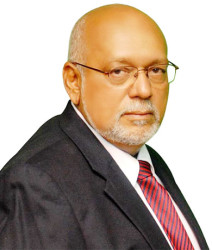The US$10 million Micro and Small Enterprise Development (MSED) and Building Alternative Livelihoods for Vulnerable Groups project may be in imminent danger of falling calamitously short of its lofty ambitions, a source close to the project has told this newspaper.
Launched with much aplomb by former president Donald Ramotar in October 2013 the project is financed through the Low Carbon Development Strategy/Guyana REDD+ Investment Fund (LCDS/ GRIF) and overseen by the Inter-American Develop-ment Bank (IDB).

Stabroek Business understands that apart from having fallen woefully short of its targets for the disbursement of both loans and grants, the management of the project has come under critical scrutiny from the IDB. The source told this newspaper that at a recent review meeting at which the IDB was represented the idea of pulling the project was raised.
Criticisms of the project, the source told Stabroek Business, have centred around the slow pace at which both the loans and grants have been disbursed. This newspaper understands that “probably less than half” of the 300 grants that ought to have been made up to this time have actually been disbursed, while of an original projection of 200 commercial bank loans only 30 have been disbursed so far. Stabroek Business has also been informed that the target for loans has been reduced to 70.
Signs that the project was moving at a slower than anticipated pace became clear several months ago when it was officially announced that the original target of 2,200 jobs over a two-year period could not be met. The source told Stabroek Business that it was highly likely that the job creation level would fall well below that mark.
Meanwhile, the source told Stabroek Business that the MSED might have lost its way, “once it became clear that it was being manipulated for political purposes.” This newspaper was told that at one point it became clear that the project was being manipulated to meet the needs of the ruling administration in the light of approaching elections. “Particular instructions were given regarding where training should take place and the focus was on using the grants available through the Small Business Bureau to basically buy votes. The focus was on the grants because these were more immediately accessible. In the case of Region Four, the people at the top demanded to see the list of names of eligible people and many were systematically weeded out,” the source said.
The MSED Project had been hailed by the previous political administration as a kick start for small business financing in Guyana, the legislative way having been cleared several years earlier through the passage in the National Assembly in 2004 of the Small Business Act. Among the sectors targeted by the project are eco-tourism, fruit and vegetable farming, aquaculture and sustainable forestry, among others.





